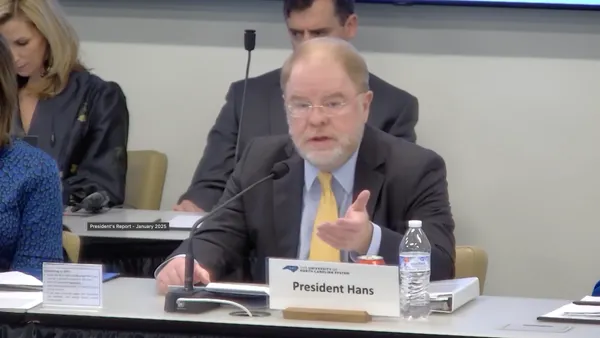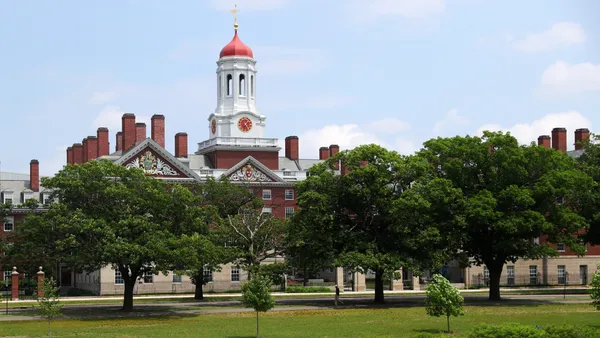Dive Brief:
- Improving community college completion rates requires looking beyond the classroom to help students navigate structural and motivational barriers to their success, according to a new report from the Brookings Institution, which notes that less than 40% of community college students earn a degree or certificate in six years.
- The report recommends a shift from a "cafeteria-style" educational model to one with guided, career-oriented pathways. The report cites the City University of New York's Accelerated Study in Associate Programs (ASAP) as one success story for the guided approach. It has been applied at other community colleges in New York as well as in California and Ohio.
- The report also makes the case for emerging technologies to provide targeted support in a scalable and cost-effective way, such as programs that send text messages to students during the summer to reduce melt rates. It also recommends using existing models that have proven successful, implementing expectancy value interventions, as well as measuring and sharing the result of interventions.
Dive Insight:
The CUNY ASAP program is a model of community college success that is being replicated not only in other community colleges, but also in four-year institutions.
ASAP students are offered an opportunity to pursue full-time study at no extra cost through waiving any tuition or fees not covered by financial aid. Students also receive comprehensive mentoring, convenient class scheduling with a small cohort of no more than 25 students, academic tutoring and career counseling that gets them involved in their career of choice while they learn.
A 2017 report evaluating the CUNY program found that after six years of implementation, ASAP students earned associate degrees at a higher rate and more quickly than learners not enrolled in the program. ASAP students also were more likely to transfer to a four-year degree program and graduate than students not enrolled in the program.
Community colleges are seeking to improve retention rates among part-time students and efforts such as the ASAP program can help by enabling prospective part-time students to take on full-time study.
Bunker Hill Community College, in Boston, groups students together for two classes each semester to improve interaction, which they hope will help retention. The college has expanded those learning communities to include part-time students. The decision goes beyond typical efforts to increase the number of credit hours part-time students take by focusing instead on fostering a sense of belonging on campus.










